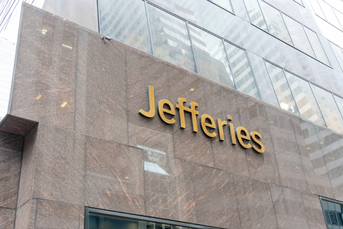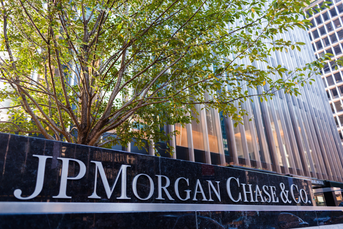LendingClub is turning out to be anything but a ‘direct’ lender
 Renaud Laplanche, who unexpectedly resigned as CEO and chairman of LendingClub this week.
Renaud Laplanche, who unexpectedly resigned as CEO and chairman of LendingClub this week.
In May of last year, Renaud Laplanche, the head of a fast-growing fintech company that had five months…
In May of last year, Renaud Laplanche, the head of a fast-growing fintech company that had five months earlier listed on the New York Stock Exchange at a valuation of almost $9 billion, hosted a gaggle of clients and journalists aboard a state-of-the-art trimaran. LendingClub Corp.’s guests were treated to a windswept tour of the Hudson River, as well as LendingClub-branded windbreakers and individual bottles of Kiehl’s Since 1851 Inc. sunscreen to protect against the strong spring sun.
A year later and Mr. Laplanche and his company have run into an unexpected corporate squall.
San Francisco-based LendingClub on Monday announced the unexpected resignation of Mr. Laplanche as CEO and chairman and disclosed internal-control lapses and abuses related to the sale of some of its loans.
The allegations sent LendingClub shares plunging and, more significantly, exposed one of the biggest oddities at the center of the company’s business model. While promising to democratize finance by using new technology to directly match borrowers with lenders, LendingClub has turned to a complicated network of middlemen and professional investors to fund its rapid expansion and disintermediate traditional banks.
(Related: What advisers need to know about peer-to-peer lending)
It is this network that may prove most vulnerable to scrutiny following accusations that the company knowingly sold non-conforming loans to a major investor — Jefferies Group LLC. Perhaps more significantly, Mr. Laplanche is also said to have failed to disclose a personal interest in an investment entity in which LendingClub purchased a stake — an investment entity which also buys LendingClub loans.
The circular nature of the deal raised questions among industry participants as well as eyebrows at the U.S. securities watchdog, which is now reviewing LendingClub’s disclosures.
“Their intention was to try to position themselves as a technology company and the more assets that they hold that they fund themselves the less they look like a technology company and the more they look like a bank or asset manager,” said Peter Atwater, president at Financial Insyghts and a former banker at JPMorgan Chase & Co. “Those two industries have very different valuations.”
Institutional investors in loans originated through LendingClub and other direct lending platforms have been lured by two promises; the ability of new technology to dampen some of the risks traditionally associated with unsecured consumer lending while simultaneously reducing costs, and the related assurance of higher returns uncorrelated with more traditional assets such as stocks and bonds.
“The Internet, technology, and social habits have finally started to disintermediate banking and lending with the rise of online direct lending platforms, or peer-to-peer marketplaces,” read a sales pitch put together by OrchardWay P2P Creditfund Ltd., which invests in certain LendingClub loans via HCG Digital Finance LP. “This confluence of events has created an opportunity for savers to invest in high quality and lucrative loans that were heretofore reserved for established banks and lending institutions.”
An accompanying chart demonstrated the “low volatility” returns provided by investing in such loans.
https://www.investmentnews.com/wp-content/uploads/assets/graphics src=”/wp-content/uploads2016/05/CI105214510.PNG”
The degree to which such solicitations have proved successful is unknown as is the exact number of funds that have partnered with LendingClub. Many such funds apply leverage — typically provided by large banks — to their purchased loans in order to further enhance returns.
Some industry commentators have previously questioned the ability of such funds to withstand a downturn in the credit cycle, as well as the rigor with which they both select and value their loans. Evolution Capital Management LLC, which invests in LendingClub loans as well as those originated through Prosper Marketplace Inc. and FundingCircle Ltd., abruptly changed its loan valuation policy last October, for example.
“Loans were previously marked at par [plus] accrued interest,” the company said in an e-mail to investors. “We now mark all loans according to an expected default curve that better reflects the future expected value of each loan by accounting for its age and status. The implementation of this new policy caused a one-time markdown of current loans, and a markdown of non-performing loans that will be phased in over the next two to three months, which will result in lower returns during this period.”
A spokesman for LendingClub did not return a request for comment while Evolution Capital and Bedrock Group, which created the OrchardWay fund, did not immediately respond to e-mails.
Any extra scrutiny of the intricate ecosystem built by LendingClub under Mr. Laplanche’s tenure will likely dent the company’s future rate of expansion and cast even darker storm clouds over its future. LendingClub’s market value now languishes at a little over $1.8 billion — a far cry from the $8.9 billion reached in its late 2014 initial public offering.
Mr. Laplanche’s departure is “likely to undermine the confidence of banks and other institutional investors,” Morgan Stanley analysts led by Vasundhara Govil wrote in a note. “We expect Renaud may have been instrumental in signing some institutional investors, and his departure will potentially slow new partnerships and possibly strain existing ones.”
Learn more about reprints and licensing for this article.








